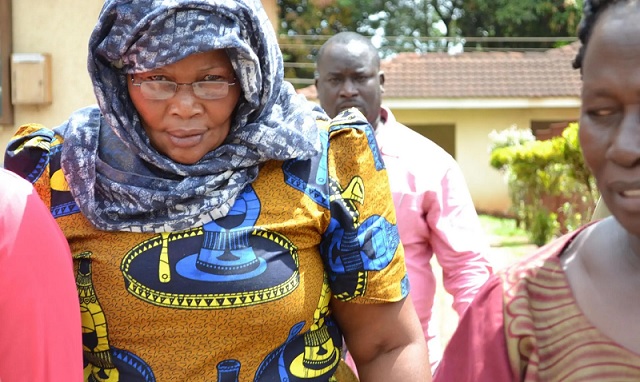
Soroti, Uganda | THE INDEPENDENT | Three Judges of the Court of Appeal have unanimously allowed an appeal by the Auditor General against the Soroti High Court ruling that quashed audit reports pinning the interdicted Soroti University Secretary, Ruth Achimo Etibot of procurement irregularities and Abuse of office.
Achimo ran to Soroti High Court over the audit reports by the Auditor General for Soroti University on grounds that they were of no legal effect or consequence.
The said reports were the Forensic Investigation Report into alleged diversion of funds from Capital Development Fund by Officials of Soroti University Quote No. DCG. 46/47/O74 dated March 2O2O; the Special Investigation Report by the Auditor General on the Internal Audit Findings for Soroti University Quote No. DCG. 79134O/01 dated November 23, 2OI8 and the Annual Report of the Auditor General on the Financial Statements of Soroti University for the Year ended 30th June 2018 Quote No. DCG. 158/293/01 dated 18th December 2018.
Achimo asked court to declare them illegal on grounds that the reports which revealed her and the former University bursar, Edward Ebeele diverting 1.6 billion shillings was illegal because the process leading to it was unlawful.
She faulted the process which was initiated by the request of Francis Xavier Lubanga, the Chairperson University Council, whom she said had no legal mandate to initiate or request for the same. She also argued that Lubanga initiated the investigation process out of malice and bad faith with sole intention of instigating malicious and selective prosecution against her.
Achimo also told the Soroti High Court Judge then, Justice Wilson Masalu Musene, that the reports caused her arrest and arraignment before the Anti-Corruption Court where she was charged with diversion of funds and abuse of office before being granted bail.
In his ruling of March 24, 2021, Justice Musene said that the Auditor General acted illegally, irrationally and in total violation of Achimo’s right to a fair hearing. Justice Musene added that the Auditor General executed instructions from an unauthorized person, indulged in matters outside the scope of the requested audit and made audit reports for the benefit of third parties instead of the Parliament as required under the law.
However, in the appeal Judgement of March 16, 2023, Justice Cheborion Barishaki overturned the ruling of the High Court on grounds that the Auditor General acted within his constitutional mandate.
The Judge together with his two other colleagues; Justice Stephen Musota and Justice Christopher Madrama noted that the Auditor General’s main function under the provisions of Article 163 (3) (a) and (b) of the 1995 Constitution, is the carrying out of audits of public accounts.
The Justices noted that under the National Audit Act, 2008, the Auditor General is empowered to carry out different types of audits, including: special audits and investigations, or other audits he considers necessary under section 22; audits of accounts of the central government under section 15; audits of accounts of local governments (Section 16; audits of accounts of public organizations section 17; and value for money audits section 21.
“The Auditor General is expected to make a report on the audits made under sections 15, 16, 17 or 18, and submit the same to Parliament. Further, the auditor general is expected to make an annual report on all the other audits, including special audits and investigations and value for money audits, and submit a report of the same to Parliament under Article 163 (4) of the Constitution for debate and appropriate action by Parliament.
All reports of the Auditor General are expected to be submitted to Parliament, and Parliament is expected to debate and consider them before taking proper action,” the ruling reads in part.
Justice Cheborion noted that it does not matter who originates the request for an audit where the Auditor General’s report is made.
He added that once an audit is undertaken by the Auditor General, he immediately owns it and must submit a report to Parliament.
“In the present case, it is immaterial that the investigations resulting in the Special Investigation Report were requested by Mr. Lubanga or that those leading to the Forensic Report were originated by the Uganda Police, what matters is that the two reports are reports from special audits and investigations of the type envisaged under Section 22 of the National Audit Act, 2008 and that such audits are made for the benefit of Parliament.” the ruling by Justice Cheborion reads in part.
The Judges also stressed that the primary use of a report of the Auditor General is not for prosecution of any person. He then allowed the appeal with costs.
*****
URN
 The Independent Uganda: You get the Truth we Pay the Price
The Independent Uganda: You get the Truth we Pay the Price



